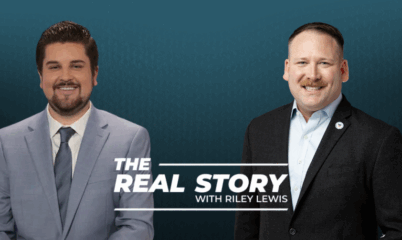
Selnick: Veterans shouldn’t have their health care needs dictated to them by a self-serving VA
I recently read an opinion piece in Task & Purpose on the “grim dangers” of allowing veterans the choice to access community care through their VA benefits.
The piece paints a startling, albeit inaccurate, picture of what would potentially happen to veterans if choice legislation were passed. It’s chock full of half-truths, misleading statistics, and disinformation to create a false narrative that community care and VA care can’t exist together.
As someone who’s worked in and around the VA for decades and helped guide the VA MISSION Act’s writing, passage, and implementation, I want to correct the record.
The Orwellian premise, “In the name of health care freedom, millions of veterans will lose VA choices” is a good place to start.
The DOD health care system went through the same process of establishing more choice decades ago. Rather than disappearing, facilities evolved and rightsized to meet actual demand while improving customer service, operations, and efficiency. There’s no reason to believe the same wouldn’t be true for VA.
Empowered with care options, veterans choose how much VA stays the same or shrinks depending on how much VA earns veterans’ use and trust. Veterans would not lose VA as a choice; they would just have the option to choose it.
And as is clear in the recommendations of the Commission on Care, the blue-ribbon report that ultimately inspired the VA MISSION Act, a strong community care network creates a larger overall VA health care system. VA would be strengthened by a larger system of providers that can relieve some pressure without harmfully disrupting veterans’ care.
The scare tactics and blind loyalty to the VA don’t change the fact that VA is not always the best choice for care.
Veterans are saying it, even in the comments of the original op-ed – the VA too often mistreats, misuses, and misguides the veterans it has a responsibility to care for. We’ve found proof in documents obtained through a Freedom of Information Act lawsuit.
VA has produced guidance and policies to dissuade veterans from choosing community care and keep them at VA.
By the VA’s metrics, the department is doing a great job. The studies show, as the authors put it, the “superior caliber” and “shorter wait times” with VA care. But one of those studies was conducted by an academic institute in concert with VA staff. That’s hardly unbiased data.
Further, FOIA documents reveal the VA uses outdated, inaccurate wait time calculators to create the appearance of shorter waits, and, in turn, making veterans ineligible for community care.
Of course wait times will appear shorter when they’re twisted and manipulated.
The authors’ original water analogy for resources and treatment works just fine, though it’s backwards. The authors paint a picture of health care dollars heading downstream to the VA, but getting used up by community providers before they can get to VA.
In reality, the VA is upstream, deciding where the dollars go and which veterans get community care, despite laws telling VA which veterans are eligible.
But it’s hard to keep your massively inflated budget when so many of your patients aren’t happy with their care, so the VA has built a bureaucratic dam to hold veterans in. Meanwhile, community providers nationwide stand ready to provide desperately needed care, if only the VA would let them.
The legislation meant to fix and reform these problems is under attack from these authors and others more concerned with the preservation of the system over the health of veterans. But those concerns are misguided as well.
The bipartisan Veterans’ HEALTH Act combats the VA’s internal policies on “appropriate” usage of community care, forcing VA to actually implement and follow the MISSION Act the way it was intended by Congress. It’s as cut and dry as that.
The Veterans Health Care Freedom Act is based on recommendations from the Commission on Care, a group established by the Obama administration and lead by his appointee. The recommendation that the bill is based on is for a system where veterans would always have the choice to pick either the VA or a community care provider in the network.
The bill would not “drastically modify the process by which enrolled veterans obtain care – private providers without VA authorization, referral, or oversight”. In reality, the exact same management processes would be used, but veterans would always be able to choose which clinician they want.
Choice is lifesaving. It’s going to prevent the long waits for mental health care, the blocking of community care access, and the delayed care that is literally killing veterans.
We should all agree veterans have earned timely, quality care, no matter where that care comes from. And for those that can’t agree with that, at least they’re not hiding where their priorities lie.
Darin Selnick is a senior advisor for Concerned Veterans for America and an Air Force veteran. He served as Veterans Affairs adviser on President Donald Trump’s Domestic Policy Council and as a senior advisor to the VA secretary. He also served on the Commission on Care during the Obama administration.




